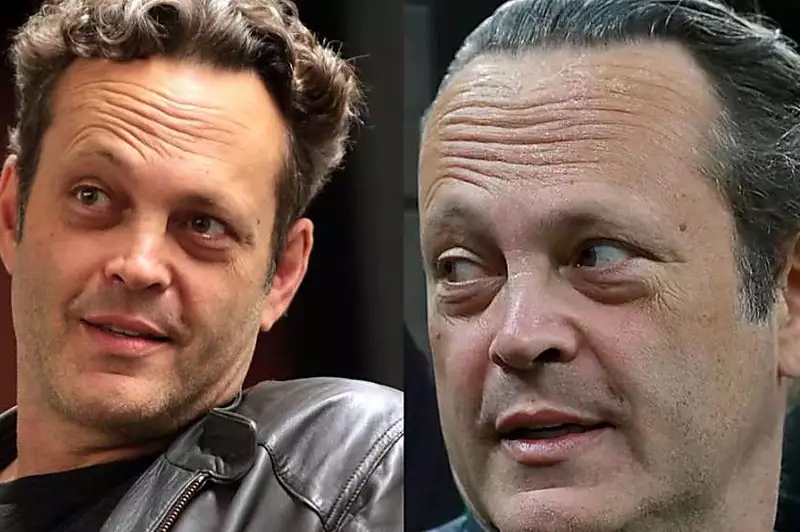QAnon and ‘Sound of Freedom’ Both Rely on Tired Hollywood Tropes
Many critics have linked Sound of Freedom to the pro-Trump QAnon conspiracy cult. They’ve also been startled by its mainstream success. But the truth is that the conspiratorial right and the Hollywood default aren’t that different — which is why, perhaps, our polity has had such difficulty rejecting QAnon, Trump and fascism. The film is controversial because the man the movie is about, former Homeland Security operative Tim Ballard, and the actor who plays him, Jim Caviezel, both have links to QAnon. Ballard has promoted the baseless claim that furniture retailer Wayfair was involved in child trafficking. Caviezel has spoken at multiple QAnon events. In an interview with former Trump adviser Steve Bannon, he promoted one of the cult’s most outrageous conspiracy theories, claiming that child traffickers drain their victim’s blood to create a serum to prevent aging.
Angel Studios, which created the thriller, insists that, despite these links, the movie itself isn’t related to QAnon. And after sitting through the 2-hour movie, I think Angel Studios has a point. The film doesn’t explicitly reference QAnon talking points. Instead, in many ways, it echoes and reproduces themes and tropes around trafficking that are common in mainstream Hollywood cinema. Sound of Freedom isn’t QAnon propaganda, exactly, but it shows how closely QAnon propaganda mirrors common popular pulp narratives.
Sound of Freedom is centered on the kidnapping of two young Honduran children, Miguel (played by Lucás Ávila) and Rocío (Cristal Aparicio). Agent Ballard becomes aware of their plight while staking out a child abuser in the US. Defying the Homeland Security bureaucracy, he sets up a series of sting operations in Colombia — the last of which leads him into rebel-controlled territory to save Rocío from a militia leader.
Although the movie is billed as being based on a true story, reporting suggests that Ballard frequently makes exaggerated claims and oversells his own contributions. In 2020, his organization, Operation Underground Railroad, was investigated for using false claims about its successes to raise money, though charges were never filed. (On Thursday, it was reported that he left the organization.)
Anti-trafficking experts have also argued that the film’s presentation of trafficking is misleading. Data also points to a different picture than what is depicted in the film. The Counter-Trafficking Data Collaborative, which collects information from around the world, found that 67% of the children who are sexually trafficked are 15 to 17 years old rather than young children. In 41% of the cases, a family member was involved.
Behind those numbers are often stories of addiction, disowned LGBTQ+ people and trading sex on the street to survive. That’s why experts worry that Sound of Freedom’s stranger danger narrative, and the way it centers on victims who are as innocent and as sympathetic as possible, may make it more difficult to organize help for less perfect victims when they are targeted by those close to them.
But while the film doesn’t necessarily jibe with reality, it does very much fit into Hollywood’s standard presentation of exploitation and trafficking. From classics like Taxi Driver (1976) to exploitation dreck like Rambo: Last Blood (2019), from the big-budget thriller Taken (2009) to the supposedly true-to-life-but-then debunked biopic Eden (2012), representations of sex trafficking in Hollywood follow more or less the same script. A conspiratorial network (generally run by people of color) kidnaps an innocent child. A (generally white) hero must race to the rescue.
Occasionally these stories, like Taxi Driver, introduce some moral complexity. Sometimes, as in The Mother (2023), trafficking is a plot byway rather than the central concern. But almost inevitably, one way or the other, difficult questions are skipped over. What was so horrible in Iris’ home life in Taxi Driver that led her to run away to begin with? Wouldn’t Eden be hounded by the cops if she actually murdered her captors in Eden? Papering over nuances ensures the purity of the rush of righteous morality and rage.
QAnon hasn’t changed the tropes. It’s just repurposed them for partisan politics. The Pizzagate conspiracy theory which grew into QAnon was based on the idea that Democratic officials were operating a satanic cabal and sex trafficking ring out of a pizzeria. It sounds ridiculous. But it’s not that far removed from Hollywood narratives where vast kidnapping networks are virtually undetected, bad guys are unremittingly evil, and the good guys are sensitive and unfailingly virtuous.
Scholar Robert Paxton argues that fascism is marked, among other things, by “cults of unity, energy, and purity” and that it pursues goals of “internal cleansing.” The far right is motivated by myths of corrupted innocence and corruption avenged. You can see that in QAnon. But you can also see it in Hollywood’s own trafficking narratives.
So, is Sound of Freedom a QAnon dog whistle, or is it just another thriller? The answer is that — whatever the filmmaker’s intentions — it functions as both. These narratives do little to help victims. But they can create coalitions of feeling, disgust and righteous rage that connect conservative conspiracy theorists with the mainstream. That’s why Trump’s screening it. And that’s why its popularity is ominous.
This column does not necessarily reflect the opinion of the editorial board or Bloomberg LP and its owners.
More stories like this are available on bloomberg.com/opinion
©2023 Bloomberg L.P.

![[Photos] Her Dress At The Oscars Will Be Spoken About For Centuries [Photos] Her Dress At The Oscars Will Be Spoken About For Centuries](https://images.outbrainimg.com/transform/v3/eyJpdSI6ImU1YjkyODkyODc5NmJjMzRjNGUzY2Q3MWFjNzQ3MGZmMjg0MGZkODZlYjk4NWU3YjBhMDhjYjJkOWYxZTBiNWQiLCJ3IjozMDAsImgiOjIwMCwiZCI6Mi4wLCJjcyI6MCwiZiI6NH0.webp)




